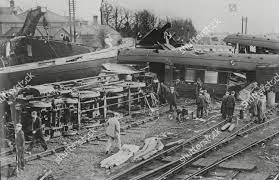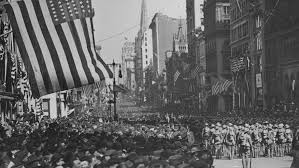January 7, 1931, serves as a poignant date during the tumultuous era of the Great Depression, a period marked by unprecedented economic hardship and widespread unemployment in the United States. On this day, an alarming statistic underscored the severity of the economic crisis, revealing that between 4 to 5 million Americans were unemployed. This stark reality painted a grim picture of the struggles faced by individuals and families across the nation during one of the darkest chapters in American history.
The Great Depression, triggered by the stock market crash of 1929, rapidly plunged the United States into an economic abyss. By 1931, the effects of the downturn had permeated every facet of society. Businesses shuttered, banks collapsed, and industrial production plummeted, leading to a cascading effect on employment. The once-thriving economy ground to a halt, leaving millions of Americans without jobs, income, and a sense of economic security.
The staggering unemployment figures of 4 to 5 million underscored the magnitude of the crisis and the profound impact it had on the labor force. Jobs evaporated across various sectors, from manufacturing and agriculture to service industries. The unemployment rate soared to unprecedented levels, reaching double digits and leaving a substantial portion of the workforce without means of sustenance.
The human toll of this economic catastrophe was immeasurable. Families faced evictions, hunger, and destitution as the economic downturn deepened. Breadlines became a common sight in cities across the country, and soup kitchens struggled to meet the overwhelming demand for basic sustenance. The unemployed, often desperate for work, wandered the streets in search of any opportunity to earn a livelihood.
The psychological and emotional toll on individuals and communities was equally profound. The loss of jobs not only meant financial hardship but also eroded the sense of self-worth and identity tied to work. Unemployment became a pervasive and demoralizing force, with long-lasting consequences for the mental health and well-being of those affected.
In response to the escalating crisis, the government faced the formidable challenge of addressing the needs of the unemployed and stimulating economic recovery. The Hoover administration, in power at the time, struggled to implement effective policies to combat the economic downturn. The situation worsened, setting the stage for Franklin D. Roosevelt's presidency and the subsequent implementation of the New Deal—a series of ambitious programs and reforms aimed at providing relief, recovery, and reform.
The stark unemployment figures of January 7, 1931, serve as a poignant reminder of the profound human impact of the Great Depression. This economic catastrophe not only reshaped the economic landscape of the United States but also reshaped the nation's social and political fabric. The struggles faced by the unemployed during this era laid the groundwork for a reevaluation of government's role in addressing economic crises and fostering social welfare—a paradigm shift that would shape the trajectory of the nation for years to come.






